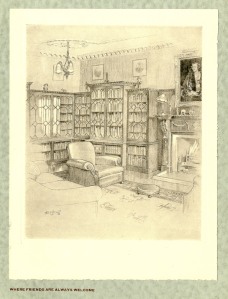 User queries often entail looking closely at an early reader’s annotations. This week Philip de Commynes’s The Historie of Philip de Commines Knight, Lord of Argenton, translated by Thomas Danett (London, 1601) came under the spotlight. Marginal comments in a seventeenth-century hand show an engaged and caustic reader. Next to the claim ‘the realme of England is the country where the common wealth is best gouerned’, which has been underlined, the underliner has written: ‘this may have been true in Commines his day’. Besides the sentence: ‘but he was so wise that no man could faile to please him if he executed his commandements, without adding ought thereto of his owne braine’, also underlined, the same annotator has noted: ‘that example ought to teach servants their dutye’. One feels very close to one’s forbears.
User queries often entail looking closely at an early reader’s annotations. This week Philip de Commynes’s The Historie of Philip de Commines Knight, Lord of Argenton, translated by Thomas Danett (London, 1601) came under the spotlight. Marginal comments in a seventeenth-century hand show an engaged and caustic reader. Next to the claim ‘the realme of England is the country where the common wealth is best gouerned’, which has been underlined, the underliner has written: ‘this may have been true in Commines his day’. Besides the sentence: ‘but he was so wise that no man could faile to please him if he executed his commandements, without adding ought thereto of his owne braine’, also underlined, the same annotator has noted: ‘that example ought to teach servants their dutye’. One feels very close to one’s forbears.
Monthly Archives: May 2012
Remembering the war at Senate House Library
 The University Library section of the University of London Archive came into its own when Karen Attar lectured on ‘The University of London Library during the Second World War’ (the University of London Library being Senate House Library’s name at the time). The talk drew heavily on Library Committee minutes and annual reports, library office correspondence, and on more personal documents. The recollections, written in 1966, of a member of staff who worked in Senate House throughout the war and remembered such things as everyone getting plenty of exercise because the lifts did not work for months on end, provide a fascinating personal glimpse into the period. The official library diary records the sorts of reference enquiries received, and describes clearing up after air raids, and trespasses from members of the Ministry of Information among other details. Just how important the Archive is for uncovering such insights will become apparent when the talk is published.
The University Library section of the University of London Archive came into its own when Karen Attar lectured on ‘The University of London Library during the Second World War’ (the University of London Library being Senate House Library’s name at the time). The talk drew heavily on Library Committee minutes and annual reports, library office correspondence, and on more personal documents. The recollections, written in 1966, of a member of staff who worked in Senate House throughout the war and remembered such things as everyone getting plenty of exercise because the lifts did not work for months on end, provide a fascinating personal glimpse into the period. The official library diary records the sorts of reference enquiries received, and describes clearing up after air raids, and trespasses from members of the Ministry of Information among other details. Just how important the Archive is for uncovering such insights will become apparent when the talk is published.
Focus on railways
Dr Carlos Galvis of the Institute of Historical Research addressed the Senate House Library Friends on ‘Transport Collections in the Goldsmiths’ Library’, and supported the talk with a display from the Library’s works on railways. It was a good chance to showcase a topic that has been a strength of the Goldsmiths’ Library of Economic Literature ever since it entered the University of London in 1903, and one that become still stronger with subsequent purchases – most notably from the collection of the railway engineer John Urpeth Rastrick, the first part of which was purchased in 1908. The appreciation of the Friends at seeing Bradshaw timetables, early tourist guides based on use of the railways, and railway reports was warming: ‘we all gathered around the exhibition admiringly afterwards. THANKS so much from the Friends’.
Where friends are always welcome
 The Sterling Library of English literature is one of the outstanding collections at Senate House Library. Its founder, Sir Louis Sterling, collected in the spirit of sharing, as this New Year card, sent by him and his wife to their friends and family in 1932, shows.
The Sterling Library of English literature is one of the outstanding collections at Senate House Library. Its founder, Sir Louis Sterling, collected in the spirit of sharing, as this New Year card, sent by him and his wife to their friends and family in 1932, shows.
A handsome picture of the library in the Sterlings’ London home at Primrose Hill, before its move to Senate House, bears the caption: Where friends are always welcome. This is a fitting tag for our new site, which seeks both to share news and to provide a window onto our historic and special collections.
